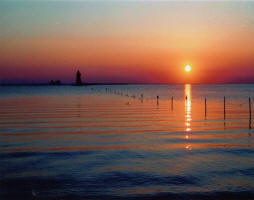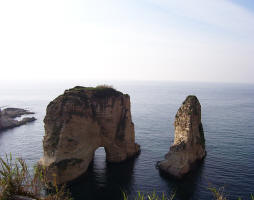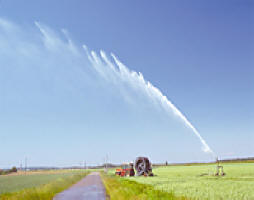 Development of tools and guidelines for the promotion of sustainable urban wastewater treatment and re-use in agricultural production in Mediterranean countries
Development of tools and guidelines for the promotion of sustainable urban wastewater treatment and re-use in agricultural production in Mediterranean countries
- Water is an environmental, social and economic asset and as such needs to
be managed with the objective of conserving a common patrimony in the
interests of the community at large. Thus it is necessary and important to
guarantee water availability over time by means of sustainable forms of
management, which will allow the Mediterranean countries to cope with
present demands without jeopardizing environmental balance and the needs of
future generations.
- The North African and Middle East Countries are characterized by the
lowest per capita amount of water supply in the world, unequally distributed
in space and time. The Mediterranean Water Chapter established in Rome in
1992 stressed the need to contribute towards the creation of new water
sources. The Declaration of the Euro-Mediterranean Ministerial Conference on
local water management, held in Turin, stressed the importance of
integrating water resource management into sustainable development policies.
It also stated the need for encouraging a participatory approach involving
the general public, including water users and organizations at local,
regional and national level. Another main aspect of this declaration is the
statement that water scarcity could be alleviated through the mobilization
of non-conventional water resources, such as re-use of wastewater.
-A significant problem for these countries is the lack of sufficient systems
for urban wastewater treatment. Raw sewage is deposited into the sea,
rivers, and pits or used for irrigation purposes, endangering human health
and environment as a whole. The Barcelona Declaration obliges Mediterranean
cities that do not belong to EU and that have a population of more than
100,000 inhabitants to install adequate water treatment systems to treat
their sewage by the year 2005, while those with a population of more than
50,000 inhabitants must do so by the year 2010.
| Project number | n/a | ||
|---|---|---|---|
| Subject(s) | WATER DEMAND , no translation available , no translation available , no translation available | ||
| Acronym | MEDAWARE | ||
| Geographical coverage | Greece, Spain, Morocco, Turkey, Cyprus, Lebanon, Palestine, Jordan | ||
| Budget (in €) | 1876455 | ||
| Programme | MEDA-WATER | ||
| Web site | http://www.uest.gr/medaware | ||
| Objectives | - The main objectives if this project perfectly match the strategies
of those countries aiming at strengthening wastewater management and the
utilization of treated effluent for irrigation purposes. - UES has more than 20 years' experience in the field of environmental and waste management. It is very active in the areas of wastewater treatment, development of national strategies and action plans, environmental impact studies, analysis of the effectiveness of policies and measures, clean technologies and best available techniques, industrial risk assessment and hazard analysis, etc. It has a lengthy experience in applied research through national and European projects (more than 100), in training and educating programs, in participating in scientific committees and working groups concerning environmental subjects, etc. Additionally, it provides consultation and scientific assistance to the public and private sector and, as a participant in national and international environmental networks, is experienced in organizing conferences, seminars, workshops and courses related to environmental issues. - Therefore the transfer of knowledge, experience and know-how in Mediterranean countries will be of great value, particularly given that Greece and Spain are Mediterranean countries and therefore common interests are shared between all partners. -The main objectives of the project are:
|
||
| Results | - The expected results will be the intra-regional
transfer of knowledge; increased awareness and training regarding relevant
problems and opportunities; the reinforcement of capacity building to
promote active involvement of all actors concerned in water planning and
wastewater management. - The dissemination of information on the role and effectiveness of training in spreading awareness with respect to opportunities for wastewater re-use; the sustainable operation of wastewater treatment plants; environmental advantages and the training of all project target groups, e.g. workers, farmers, operators and competent authorities on sustainable management of wastewater and safe re-use. - The project consists of eight tasks and one concerning project management. |
||
| Period | [01/05/2003 - 01/05/2007] | ||
 you are not logged in
you are not logged in





